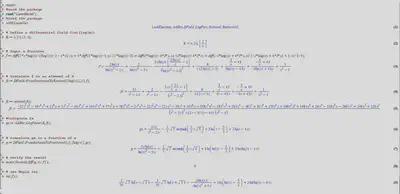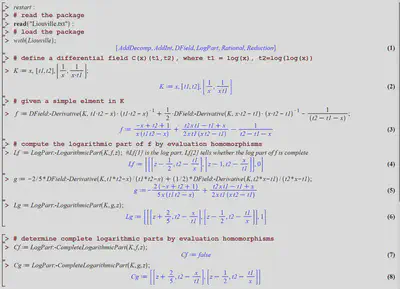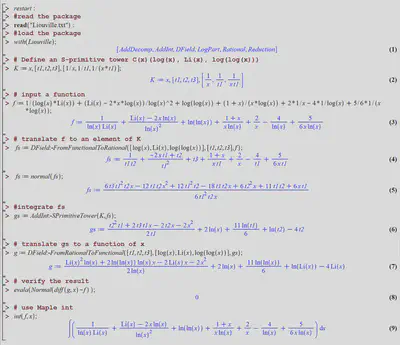Abstract
We present two evaluation-based algorithms, one for computing logarithmic parts and the other for determining complete logarithmic parts in transcendental function integration. Empirical results illustrate that the new algorithms are markedly faster than those based respectively on resultants, contraction of ideals, subresultants and Gröbner bases. They may be used to accelerate Risch’s algorithm for transcendental integrands, and help us to compute elementary integrals over logarithmic towers efficiently.
LogInt
Given an elementary integrable element in a logarithmic tower, for example,
$\mathbb{C}(x, \log(x))$ , Algorithm AddInt_log and Maple int can both compute its elementary integral.
LogPart
Given an element in a logarithmic tower, for example, in
$\mathbb{C}(x, \log(x), \log(\log(x)))$ , the Algorithm EH and Algorithm EH$^*$ can compute its logarithmic part and the complete logarithmic part, respectively.
SprimInt
By an analogue of Algorithm AddInt_log, we compute for elements in S-primitive towers while Maple int cannot.